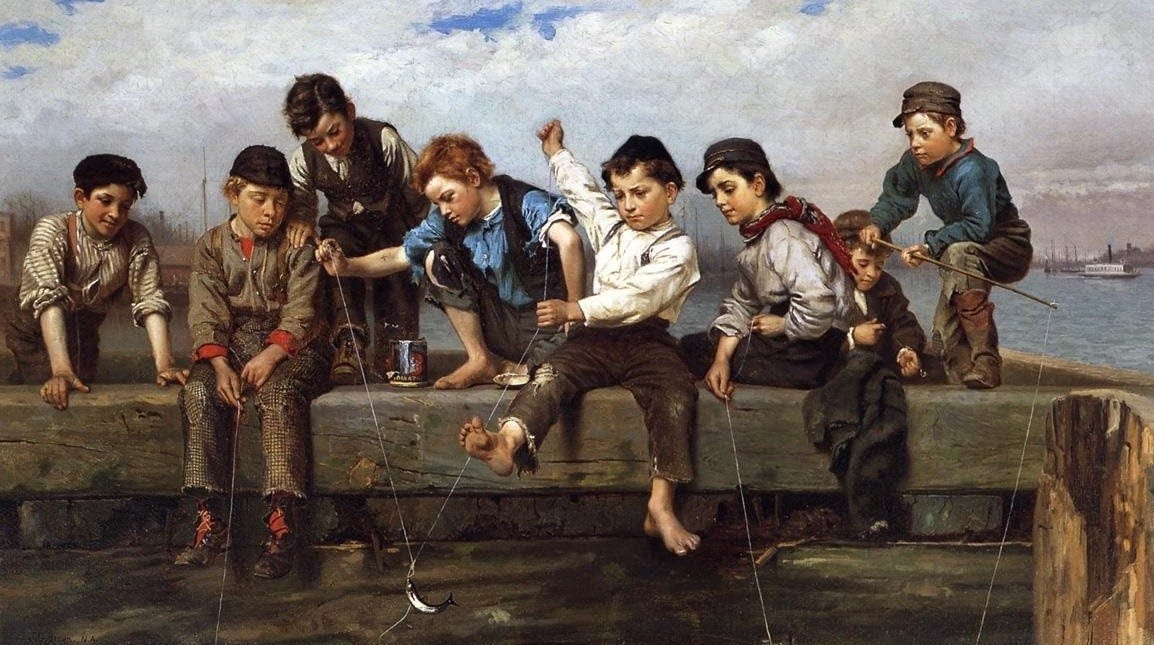
For if this book is a joke it is a joke against me. I am the man who with the utmost daring discovered what had been discovered before. If there is an element of farce in what follows, the farce is at my own expense; for this book explains how I fancied I was the first to set foot in Brighton and then found I was the last. It recounts my elephantine adventures in pursuit of the obvious. No one can think my case more ludicrous than I think it myself; no reader can accuse me here of trying to make a fool of him: I am the fool of this story, and no rebel shall hurl me from my throne.
—G.K. Chesteron, “Introduction in Defense of Everything Else,” Orthodoxy
I started writing this on Tuesday morning. I finished it a few minutes ago, without changes.
Hello friends.
It’s been a minute. And, in less than 30 minutes, I will have to be off to Cherokee Lake with Apocalyptic Cowboy and the Fish Whisperer to catch slimy, golden carp on imitation cicada flies. The last time I joined them on this type of redneck flats fishing was in 2021. Afterward, I wrote a poem about it.
Right now, I am reading The Adventures of Tom Sawyer. As a boy, I owned a hardback copy onto which I scribbled in bad cursive “Property of Brian Canever.” (That copy is in the bookcase to my right; the version I’m reading is a paperback I picked up for a few dollars from The Book Eddy’s stand at Bargain Hunters, an indoor flea market in South Knoxville that I typically venture through after consuming Chinese buffet across the street with AC).
I’m not sure if I knew then that, 20-plus years later, I’d be a mediocre writer, memorializing my childhood in a book about Ping-Pong, watching my three children play with absolute, unbridled joy, and envying them for it. For, unlike them, I have no escape from the boredom and monotony of adulthood in the 21st century, unless I want to be poor (and Haley says we’re not allowed to be).
On Monday morning, I had coffee with Sam Scott (Stories Talk Good). He is a better writer than I am of the types of stories we reminisce about as grown-ups. Of getting flogged by a hen, catapulted from a horse, chased by an angry victim of a poorly executed ding-dong ditch. Basically, stories from when we thought we were eternal. When telling a grown-up fixed everything, because grown-ups could be trusted, and children were expected to listen because rules mattered for something. (And that’s precisely what made it so fun to break them.)
Idyllic childhoods are a fiction. The best coming-of-age stories don’t pretend they aren’t. Tom and his friends see a man get killed, are conflicted with whether to tell the truth of what they saw, and, in between, run away to be pirates, get their hearts broken, and fight. That is what is so beautiful and strange about childhood: you can hear your parents fight like hell the night before, and worry over whether your brother and you will be split up, and then wake up the next morning and pretend your Eddie Guerrero and Ric Flair or go on a hunt for buried treasure in the woods beside the bay where the Mexicans get drunk at night and all you find are scattered bottles of Corona.
Keep reading with a 7-day free trial
Subscribe to Storytime with Big Head to keep reading this post and get 7 days of free access to the full post archives.


